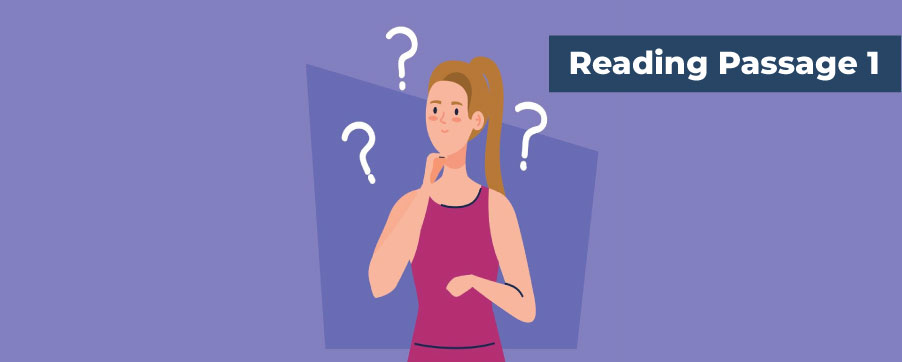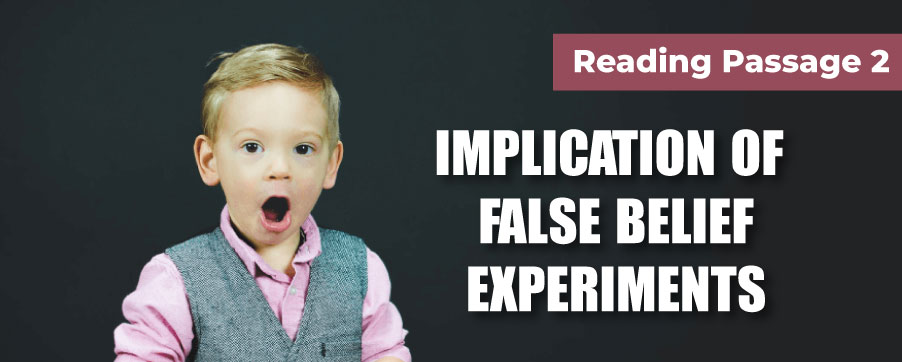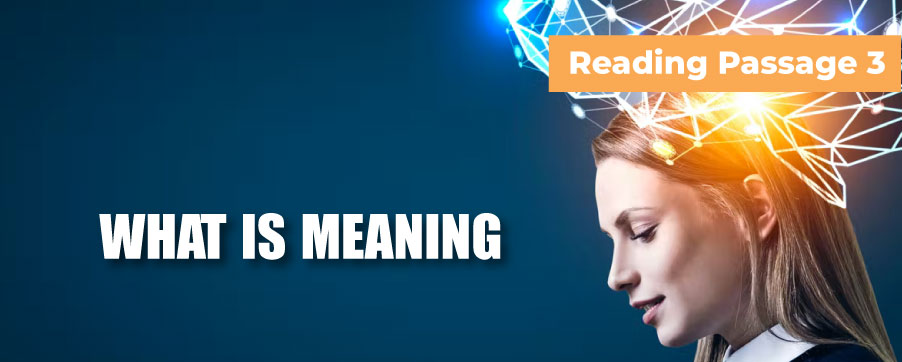
IELTS Recent Mock Tests Volume 5
- Đăng ngày: 24 Jan 2018
- Tests taken: 1,568,303
Đáp án
Part 1: Question 1 - 13
- 1 D
- 2 B
- 3 A
- 4 C
- 5 FALSE
- 6 NOT GIVEN
- 7 TRUE
- 8 NOT GIVEN
- 9 B
- 10 D
- 11 C
- 12 D
- 13 C
- 1 D
- 2 B
- 3 A
- 4 C
- 5 FALSE
- 6 NOT GIVEN
- 7 TRUE
- 8 NOT GIVEN
- 9 B
- 10 D
- 11 C
- 12 D
- 13 C
Part 2: Question 14 - 26
- 14 G
- 15 F
- 16 C
- 17 D
- 18 A
- 19 B
- 20 E
- 21 chocolate
- 22 information
- 23 four/4
- 24 older
- 25 adults
- 26 challenging
- 14 G
- 15 F
- 16 C
- 17 D
- 18 A
- 19 B
- 20 E
- 21 chocolate
- 22 information
- 23 four/4
- 24 older
- 25 adults
- 26 challenging
Part 3: Question 27 - 40
- 27 C
- 28 C
- 29 A
- 30 C
- 31 B
- 32 TRUE
- 33 NOT GIVEN
- 34 TRUE
- 35 FALSE
- 36 B
- 37 E
- 38 G
- 39 A
- 40 D
- 27 C
- 28 C
- 29 A
- 30 C
- 31 B
- 32 TRUE
- 33 NOT GIVEN
- 34 TRUE
- 35 FALSE
- 36 B
- 37 E
- 38 G
- 39 A
- 40 D
Leaderboard:
| # | Thành viên | Điểm | Thời gian | |
|---|---|---|---|---|
| Alex uyên |  | 9.0 | 15:02 | |
| Kağan Koral |  | 9.0 | 15:20 | |
| rahul singh |  | 9.0 | 15:22 | |
| 4 | Ekaterina Soboleva |  | 9.0 | 15:34 |
| 5 | OSMAN IBNAUF Saddique |  | 9.0 | 15:51 |
| 6 | saiteja velisala |  | 9.0 | 16:14 |
| 7 | james dang |  | 9.0 | 16:30 |
| 8 | Phương Vũ |  | 9.0 | 17:50 |
| 9 | Nguyen Minh Phong |  | 9.0 | 17:53 |
| 10 | Yoo Yoo |  | 9.0 | 17:56 |
Giải thích chi tiết
Questions 1-4
Look at the following descriptions or deeds (Questions 1-4) and the list of categories below.
Match each description or deed with the correct category, A-D.
Write the correct letter, A-D, in boxes 1-4 on your answer sheet.
| A | maximizers |
| B | satisficers |
| C | neither “maximizers” nor “satisficers” |
| D | both “maximizers” and “satisficers” |
1 rated to the Maximization Scale of making choice
2 don’t take much time before making a decision
3 are likely to regret about the choice in the future
4 choose the highest price in the range of purchase
- 1 Answer: D
Keywords in question
Similar words in Passage
Q1:_____ rated to the Maximization Scale of making choice.
In particular, we composed a set of statements—the Maximization Scale—to diagnose people’s propensity to maximize. (...) We did not define a sharp cutoff to separate maximizers from satisficers, but in general, we think of individuals whose average scores are higher than 4 (the scale’s midpoint) as maximisers and those whose scores are lower than the midpoint as satisficers.
After skimming, we can find that the information of Q1 should be in paragraph C which mainly tells about the Maximization Scale.
It’s mentioned in paragraph C that the scores from the scale could tell who was the maximisers and who were satisficers. So, we can infer that maximisers and satisficers are the ones who rated the scale.
Therefore, we conclude that the answer is D
- 2 Answer: B
Keywords in question
Similar words in Passage
Q2: _____don’t take much time before making a decision.
When satisficers find an item that meets their standards, they stop looking.
From paragraph C, we can find that satisficers are described they would stop looking once they’ve found the item that meets their standards, so it does not take much time for them to make decision.
Therefore, we conclude that the answer is B
- 3 Answer: A
Keywords in question
Similar words in Passage
Q3: _____are likely to regret about the choice in the future.
We found that the greatest maximizers are the least happy with the fruits of their efforts. (...) They are more prone to experiencing regret after a purchase,...
From paragraph C, it can be inferred that the maximizers are more prone to experiencing regret of their choice.
Therefore, we conclude that the answer is A
- 4 Answer: C
Keywords in question
Q4: _____choose the highest price in the range of purchase
After skimming, we find that there’s no information relating to the choice of the highest price so we can assume that neither maximizers nor satisficers choose this.
Therefore, we conclude that the answer is C
Questions 5-8
Do the following statements agree with the information given in Reading Passage 1?
In boxes 5-8 on you answer sheet, write
| TRUE | if the statement agrees with the information |
| FALSE | if the statement contradicts the information |
| NOT GIVEN | If there is no information on this |
5 In today’s world, since the society is becoming wealthier, people are happier.
6 In society, there are more maximisers than satisficers.
7 People tend to react more to loses than gains.
8 Females and males acted differently in the study of choice making.
- 5 Answer: FALSE
Keywords in question
Similar words in Passage
Q5: In today’s world, since the society is becoming wealthier,
people are happier.
Yet recent research strongly suggests that, psychologically, this assumption is wrong, with 5% lower percentage announcing they are happy. Although some choices are undoubtedly better than none, more is not always better than less.
The information of Q5 can be found in paragraph A. There’s a research which concludes that 5% lower percentage announcing they are happy and more is not always better than less. So, the statement “society is becoming wealthier, people are happier” is false.
Therefore, we conclude that the answer is False
- 6 Answer: NOT GIVEN
Keywords in question
Q6: In society, there are more maximisers than satisficers.
In the passage, we find that there’s no information relating to the number of maximizers and satisficers.
Therefore, we conclude that the answer is NOT GIVEN
- 7 Answer: TRUE
Keywords in question
Similar words in Passage
Q7: People tend to react more to losses than gains.
Early Decision Making Research by Daniel Kahneman and Amos Tversky showed that people respond much more strongly to losses than gains.
The information of Q7 can be found in paragraph F. It’s clearly stated in the paragraph that people respond much more strongly to losses than gains.
Therefore, we conclude that the answer is True
- 8 Answer: NOT GIVEN
Keywords in question
Q8: Females and males acted differently in the study of choice making.
In the passage, we find that there’s no information relating to the genders (females and males).
Therefore, we conclude that the answer is NOT GIVEN
Questions 9-13
Choose the correct letter. A, B, C or D.
Write the correct letter in boxes 9-13 on your answer sheet.
The Maximization Scale is aimed to
- A
- B
- C
- D
Keywords in question | Similar words in Passage |
Q9: The Maximization Scale is aimed to
| In particular, we composed a set of statements—the Maximization Scale—to diagnose people’s propensity to maximize. Then we had several thousand people rate themselves from 1 to 7 (from “completely disagree” to "completely agree”) on such statements as “I never settle for second best.” We also evaluated their sense of satisfaction with their decisions. |
The question asks about the purpose of Maximization Scale which can be found in paragraph C that it could evaluate people’s sense of satisfaction with their decisions. In other words, the the purpose of the scale is to evaluate (=measure) how people feel about their decisions (= choices). Therefore, we conclude that the answer is B | |
According to the text, what is the result of more choices?
- A
- B
- C
- D
Keywords in question | Similar words in Passage |
Q10: According to the text, what is the result of more choices?
| Unfortunately, the more options you have and the more opportunity costs you incur, the more likely you are to experience regret. |
About the result of more choices, it’s explained in paragraph H that the more options (=choices) you have and the more opportunity costs you incur, the more likely you are to experience regret. Therefore, we conclude that the answer is D | |
The example of theatre ticket is to suggest that
- A
- B
- C
- D
Keywords in question | Similar words in Passage |
Q11: The example of theatre ticket is to suggest that
| Full-price payers were more likely to show up at performances than discount payers. The reason for this, the investigators argued, was that the full-price payers would experience more regret if they did not use the tickets because not using the more costly tickets would constitute a bigger loss. |
The keyword in Q11 is “theatre ticket” which can be found in paragraph I. From this paragraph, we can infer that full-price payers would experience more regret if they did not use the tickets. In other words, high-priced things would bring more regret if not used properly. Therefore, we conclude that the answer is C | |
How to increase the happiness when making a better choice?
- A
- B
- C
- D
Keywords in question | Similar words in Passage |
Q12: How to increase the happiness when making a better choice?
| To increase sense of happiness, we can decide to restrict our options when the decision is not crucial. For example, make a rule to visit no more than two stores when shopping for clothing. |
The Q12 asks about the way to increase the happiness which can be found in paragraph I. It’s stated that to in to increase sense of happiness, we can decide to restrict our options when the decision is not crucial. In other words, people should limit the number of choices. Therefore, we conclude that the answer is D | |
What is the best title for Reading Passage 1?
- A
- B
- C
- D
Keywords in question | Similar words in Passage |
Q13: What is the best title for Reading Passage 1?
| |
For the best title for Reading Passage 1, after skimming the whole passage, we can get the general idea that it describes how choices affect people, and that more choices are not always better than less. This suggests that the best title should be related to more choices and their influence. Therefore, we conclude that the answer is C | |
READING PASSAGE 1
You should spend about 20 minutes on Questions 1-13, which are based on Reading Passage 1 below.

A Americans today choose among more options in more parts of life than has ever been possible before. To an extent, the opportunity to choose enhances our lives. It is only logical to think that if some choices are good, more is better; people who care about having infinite options will benefit from them, and those who do not can always just ignore the 273 versions of cereal they have never tried. Yet recent research strongly suggests that, psychologically, this assumption is wrong, with 5% lower percentage announcing they are happy. Although some choices are undoubtedly better than none, more is not always better than less.
B Recent research offers insight into why many people end up unhappy rather than pleased when their options expand. We began by making a distinction between "maximizers” (those who always aim to make the best possible choice) and "satisficers” (those who aim for "good enough,” whether or not better selections might be out there).
C In particular, we composed a set of statements—the Maximization Scale—to diagnose people’s propensity to maximize. Then we had several thousand people rate themselves from 1 to 7 (from “completely disagree” to "completely agree”) on such statements as “I never settle for second best.” We also evaluated their sense of satisfaction with their decisions. We did not define a sharp cutoff to separate maximizers from satisficers, but in general, we think of individuals whose average scores are higher than 4 (the scale’s midpoint) as maximisers and those whose scores are lower than the midpoint as satisficers. People who score highest on the test—the greatest maximizers—engage in more product comparisons than the lowest scorers, both before and after they make purchasing decisions, and they take longer to decide what to buy. When satisficers find an item that meets their standards, they stop looking. But maximizers exert enormous effort reading labels, checking out consumer magazines and trying new products. They also spend more time comparing their purchasing decisions with those of others.
D We found that the greatest maximizers are the least happy with the fruits of their efforts. When they compare themselves with others, they get little pleasure from finding out that they did better and substantial dissatisfaction from finding out that they did worse. They are more prone to experiencing regret after a purchase, and if their acquisition disappoints them, their sense of well-being takes longer to recover. They also tend to brood or ruminate more than satisficers do.
E Does it follow that maximizers are less happy in general than satisficers? We tested this by having people fill out a variety of questionnaires known to be reliable indicators of wellbeing. As might be expected, individuals with high maximization scores experienced less satisfaction with life and were less happy, less optimistic and more depressed than people with low maximization scores. Indeed, those with extreme maximization ratings had depression scores that placed them in the borderline of clinical range.
F Several factors explain why more choice is not always better than less, especially for maximisers. High among these are “opportunity costs.” The quality of any given option cannot be assessed in isolation from its alternatives. One of the “costs” of making a selection is losing the opportunities that a different option would have afforded. Thus, an opportunity cost of vacationing on the beach in Cape Cod might be missing the fabulous restaurants in the Napa Valley. Early Decision Making Research by Daniel Kahneman and Amos Tversky showed that people respond much more strongly to losses than gains. If we assume that opportunity costs reduce the overall desirability of the most preferred choice, then the more alternatives there are, the deeper our sense of loss will be and the less satisfaction we will derive from our ultimate decision.
G The problem of opportunity costs will be better for a satisficer. The latter’s “good enough” philosophy can survive thoughts about opportunity costs. In addition, the “good enough" standard leads to much less searching and inspection of alternatives than the maximizer’s “best" standard. With fewer choices under consideration, a person will have fewer opportunity costs to subtract.
H Just as people feel sorrow about the opportunities they have forgone, they may also suffer regret about the option they settled on. My colleagues and I devised a scale to measure proneness to feeling regret, and we found that people with high sensitivity to regret are less happy, less satisfied with life, less optimistic and more depressed than those with low sensitivity. Not surprisingly, we also found that people with high regret sensitivity tend to be maximizers. Indeed, we think that worry over future regret is a major reason that individuals become maximizers. The only way to be sure you will not regret a decision is by making the best possible one. Unfortunately, the more options you have and the more opportunity costs you incur, the more likely you are to experience regret.
I In a classic demonstration of the power of sunk costs, people were offered season subscriptions to a local theatre company. Some were offered the tickets at full price and others at a discount. Then the researchers simply kept track of how often the ticket purchasers actually attended the plays over the course of the season. Full-price payers were more likely to show up at performances than discount payers. The reason for this, the investigators argued, was that the full-price payers would experience more regret if they did not use the tickets because not using the more costly tickets would constitute a bigger loss. To increase sense of happiness, we can decide to restrict our options when the decision is not crucial. For example, make a rule to visit no more than two stores when shopping for clothing.






